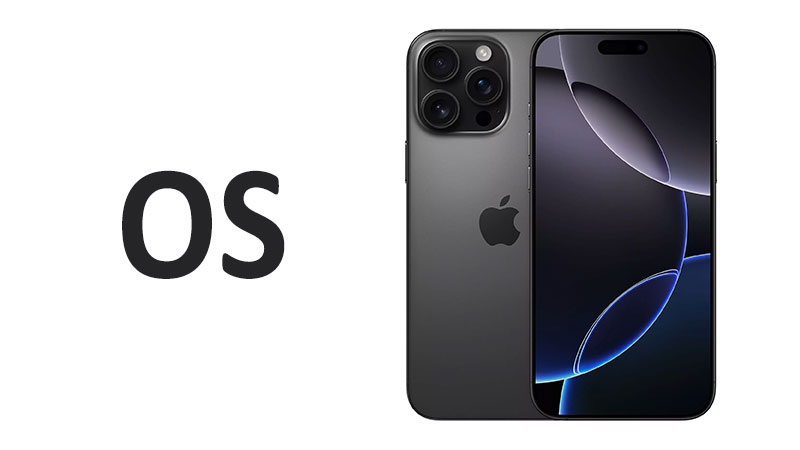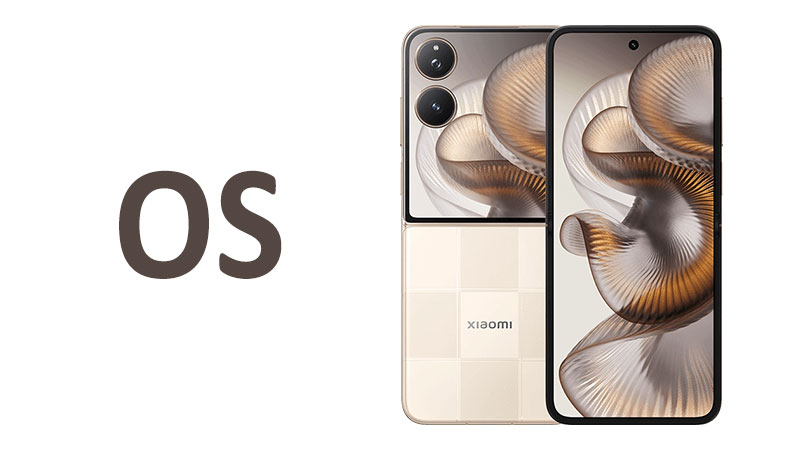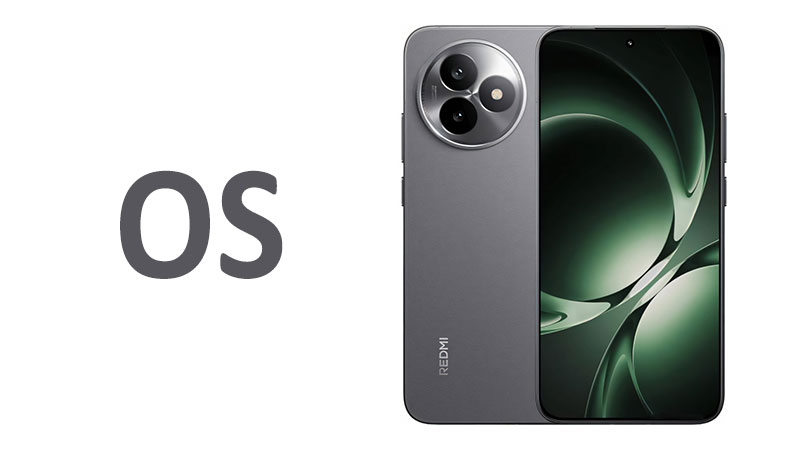The annual release of a new iPhone is a landmark event in the tech world, but the hardware is only half the story. The operating system is the soul of the device, defining the user experience. With the launch of Apple’s latest flagship, the Apple iPhone 16 Pro Max OS takes center stage. Powered by the groundbreaking iOS 18, this combination of hardware and software promises a paradigm shift in personalization, intelligence, and user interaction. This article provides a comprehensive review of iOS 18 on the iPhone 16 Pro Max, exploring its features, improvements, and what it means for you.
The Foundation: iOS 18 and Future Upgrades
The iPhone 16 Pro Max arrives pre-installed with iOS 18, Apple’s most ambitious software update in years. This isn’t just an incremental update; it’s a significant leap forward, particularly in artificial intelligence and customization.
Apple’s software support is legendary, and the iPhone 16 Pro Max is no exception. It launches with iOS 18 and is slated to receive regular updates, with the roadmap including iOS 18.6 and beyond. This long-term support guarantees users will receive new features, security patches, and performance enhancements for many years, typically five to seven, which is a major advantage over most Android competitors. This commitment ensures the device remains secure, functional, and modern long after its initial purchase.
Important Points for Buyers
- Longevity: The promise of updates up to iOS 18.6 and further into the future means your investment is protected. The phone will not become obsolete quickly.
- Security: Regular updates are crucial for patching security vulnerabilities. Apple’s consistent rollout of security updates is a key selling point.
- Feature Drops: You can expect new capabilities and refinements to be added with each point release (e.g., iOS 18.1, 18.2), keeping the experience fresh.
The AI Revolution: Apple Intelligence Takes Over
The headline feature of iOS 18 is undoubtedly Apple Intelligence, a suite of deeply integrated AI tools designed to be personal, powerful, and private. On the iPhone 16 Pro Max, powered by the new A18 Pro chip, these features are expected to perform with exceptional speed and efficiency.
Apple’s approach to AI differs from competitors like Google and Samsung. It prioritizes on-device processing for most tasks, ensuring your personal data remains on your phone, not on a server. For more complex queries, it uses a system called Private Cloud Compute, which leverages secure Apple servers without storing your data.
Key Apple Intelligence Features
- A Revamped Siri: Siri is now more conversational, context-aware, and capable. It can understand screen context, allowing you to ask questions about what you’re seeing in an app. It can also perform multi-step tasks across different applications, such as “Find the photos I took in London last week and create a new note with them.” This transforms Siri from a simple voice assistant into a true digital assistant.
- Writing Tools: System-wide writing assistance is now built into iOS 18. You can ask it to proofread, rewrite text in different tones (e.g., professional, casual), or summarize long articles, emails, or web pages. This is seamlessly integrated into Mail, Notes, Pages, and even third-party apps.
- Image Playground: This feature allows you to create images from text descriptions. You can generate images in three styles: Animation, Illustration, or Sketch. It’s integrated into apps like Messages and Notes, making it easy to create fun, custom visuals on the fly.
- Genmoji: Go beyond standard emojis by creating your own “Genmoji” based on a text description. If you can describe it, you can create it, offering limitless possibilities for personal expression in messages.
- Clean Up Tool in Photos: This AI-powered editing tool lets you remove distracting objects or people from the background of your photos with a simple circle or brush gesture. The A18 Pro chip’s Neural Engine makes this process instantaneous.
Specialized Comparison
Compared to the iPhone 15 Pro Max, the AI capabilities are night and day. The older model will receive some iOS 18 features, but the full Apple Intelligence suite is expected to run best, or in some cases exclusively, on the iPhone 16 Pro series due to the advanced Neural Engine in the A18 Pro chip. Competitors like the Samsung Galaxy S25 Ultra with its Galaxy AI offer similar features, but Apple’s deep integration and on-device privacy focus are key differentiators.
Pros and Cons
- Pros:
- Privacy-First AI: On-device processing is a huge win for user privacy.
- Deep Integration: AI tools are available system-wide, not just in specific apps.
- Intuitive and Useful: Features like summarization and the new Siri are genuinely helpful in daily tasks.
- Cons:
- Hardware Dependent: The best features require the newest hardware, potentially frustrating owners of slightly older devices.
- Initial Beta Phase: Some AI features may launch in beta, meaning they could have bugs or limitations at first.
A New Level of Personalization
For years, iOS has been criticized for its rigid home screen. iOS 18 finally addresses this, giving users unprecedented control over the look and feel of their device.
Home Screen and Control Center Customization
- Place Apps Anywhere: You are no longer bound to the top-left grid. You can now place app icons and widgets anywhere on the home screen, creating custom layouts and leaving empty space to better showcase your wallpaper.
- App Icon Theming: A new customization tool allows you to apply a color tint to all your app icons. You can choose any color, and iOS will adjust the icons to match. There is also a dark mode theme that gives all icons a sleek, uniform look.
- Redesigned Control Center: The Control Center has been completely overhauled. It now features multiple pages that you can swipe through. You can customize these pages, resize controls, and even add controls from third-party apps, making it far more powerful and personal than before.
Specialized Comparison
This level of customization brings iOS much closer to Android. While Android has offered free-form home screen placement for years, Apple’s implementation is characteristically polished and user-friendly. For long-time iPhone users, this is a massive upgrade over the static grid of iOS 17 and earlier versions.
Pros and Cons
- Pros:
- True Personalization: Finally, you can make your iPhone’s home screen truly your own.
- Improved Aesthetics: Creating clean, minimalist layouts is now easy.
- Functional Control Center: The new Control Center is more versatile and powerful.
- Cons:
- Could Be Overwhelming: Some users who prefer simplicity might find the new options a bit much.
Enhanced Communication and Connectivity
The core apps for communication, Messages and Mail, have received significant updates in iOS 18, making them more capable and versatile.
Messages App Upgrades
- RCS Support: This is a game-changer for messaging between iPhones and Android devices. Rich Communication Services (RCS) support means higher-resolution photos and videos, audio messages, typing indicators, and read receipts when messaging Android users. This finally modernizes the “green bubble” experience.
- New Text Effects: You can now apply dynamic effects to individual words, phrases, or emojis in a message. Text can shimmer, shake, or explode, adding a new layer of expressiveness.
- Message Scheduling: You can now write a message and schedule it to be sent at a later time, a feature long requested by users.
- Tapback with Any Emoji: The Tapback feature (liking a message) is no longer limited to six reactions. You can now react with any emoji or sticker.
Mail App Improvements
The Mail app gets an on-device categorization feature that automatically sorts your inbox. Primary messages from friends and family are prioritized, while other emails are sorted into categories like Transactions, Updates, and Promotions. This helps you focus on what’s important without having to manually manage folders.
Specialized Comparison
The addition of RCS support finally brings the iPhone’s cross-platform messaging capabilities in line with what Android users have experienced with Google Messages. It closes a major gap and improves the communication experience for everyone. The categorization in Mail is similar to Gmail’s tabbed inbox, but Apple’s version happens entirely on the device, preserving user privacy.
Pros and Cons
- Pros:
- Vastly Improved Android Messaging: RCS is a huge quality-of-life improvement.
- More Expressive Communication: New text effects and emoji reactions make messaging more fun.
- Smarter Email Management: Automatic categorization makes tackling your inbox much easier.
- Cons:
- RCS Is Carrier-Dependent: While widely adopted, the quality of RCS can still vary slightly between mobile carriers.
The Photos App: A Complete Redesign
The Photos app receives its biggest redesign ever in iOS 18. The goal is to make it easier to find and relive your favorite moments.
Key Changes
- Unified View: The app now has a single, simplified view. A grid of your photos is at the top, and below it are organized collections by themes like time, people, pets, and trips.
- Carousel Collections: The app will automatically curate collections and display them in a carousel that updates daily, showcasing your best photos.
- Filtering and Search: It’s now easier to filter your library. For example, you can quickly filter out screenshots and documents to see only your photos and videos. AI-powered search is also more powerful, allowing you to search for specific actions or objects in photos.
Specialized Comparison
The new design feels more like Google Photos, with a greater emphasis on AI-driven curation and discovery. Compared to the previous version in iOS 17, which separated photos into tabs like Library, For You, and Albums, the new unified view is cleaner and more intuitive.
Pros and Cons
- Pros:
- Simplified Navigation: The single-view layout is easier to navigate.
- Intelligent Curation: The app does a better job of surfacing your best memories automatically.
- Powerful Filtering: Hiding library clutter like screenshots is a fantastic new tool.
- Cons:
- Learning Curve: Users accustomed to the old layout may need some time to adjust.
Privacy, Security, and Gaming
iOS 18 on the iPhone 16 Pro Max also introduces critical updates to privacy and enhances the gaming experience.
New Privacy Features
- Lock and Hide Apps: You can now lock any app, requiring Face ID, Touch ID, or your passcode to open it. You can also hide an app entirely, moving it to a hidden, locked folder, so others can’t see it on your phone. Notifications and content from hidden apps won’t appear elsewhere in the system.
- Contacts Access Control: You now have more granular control over what contacts an app can access. Instead of giving an app all-or-nothing access, you can choose to share only specific contacts with it.
Game Mode
When you launch a game, the iPhone 16 Pro Max can now enter Game Mode. This mode minimizes background activity to sustain high frame rates and makes wireless accessories like AirPods and game controllers more responsive by reducing latency. Combined with the power of the A18 Pro chip, this makes the iPhone 16 Pro Max an even more formidable gaming device.
Final Summary: An Intelligent and Personal OS
The Apple iPhone 16 Pro Max OS is defined by iOS 18’s two core pillars: intelligence and personalization. Apple Intelligence isn’t just a gimmick; it’s a thoughtful, privacy-focused integration of AI that genuinely makes the device more helpful. The ability to summarize text, create images, and interact with a far more capable Siri fundamentally changes how you use your phone.
Simultaneously, the new customization features for the Home Screen and Control Center finally give users the freedom to make their iPhone their own. Adding in major quality-of-life updates like RCS support in Messages and a beautifully redesigned Photos app, iOS 18 feels like one of the most significant updates in the iPhone’s history.
For a potential buyer of the iPhone 16 Pro Max, the operating system is a compelling reason to upgrade. The software is not just an update; it’s a re-imagining of the iPhone experience, making it smarter, more personal, and more capable than ever before. It leverages the powerful A18 Pro chip to its fullest potential, creating a seamless and powerful user experience that is difficult to match.
FAQ
Will my older iPhone get all the iOS 18 features?
While most iOS 18 features will be available on older iPhones (from the iPhone XR/XS onwards), the full Apple Intelligence suite requires an A17 Pro chip or newer. Therefore, these advanced AI features will be exclusive to the iPhone 15 Pro/Pro Max and the new iPhone 16 series.
Is Apple Intelligence safe to use?
Yes. Apple has designed its AI with a “privacy-first” approach. Most processing happens directly on your device. For more complex tasks, it uses Private Cloud Compute on secure Apple silicon servers, where your data is never stored or made accessible to Apple.
What is RCS and why does it matter?
RCS (Rich Communication Services) is the modern standard for text messaging. It upgrades traditional SMS/MMS with features like high-quality media sharing, read receipts, and typing indicators. Its inclusion in iOS 18 significantly improves the messaging experience between iPhone and Android users.
Can I change my app icons back to the old grid layout?
Yes. The new home screen customization is optional. If you prefer the classic iOS grid layout where icons snap to the top-left, you can continue to use it that way. The new features simply provide more flexibility if you want it.



